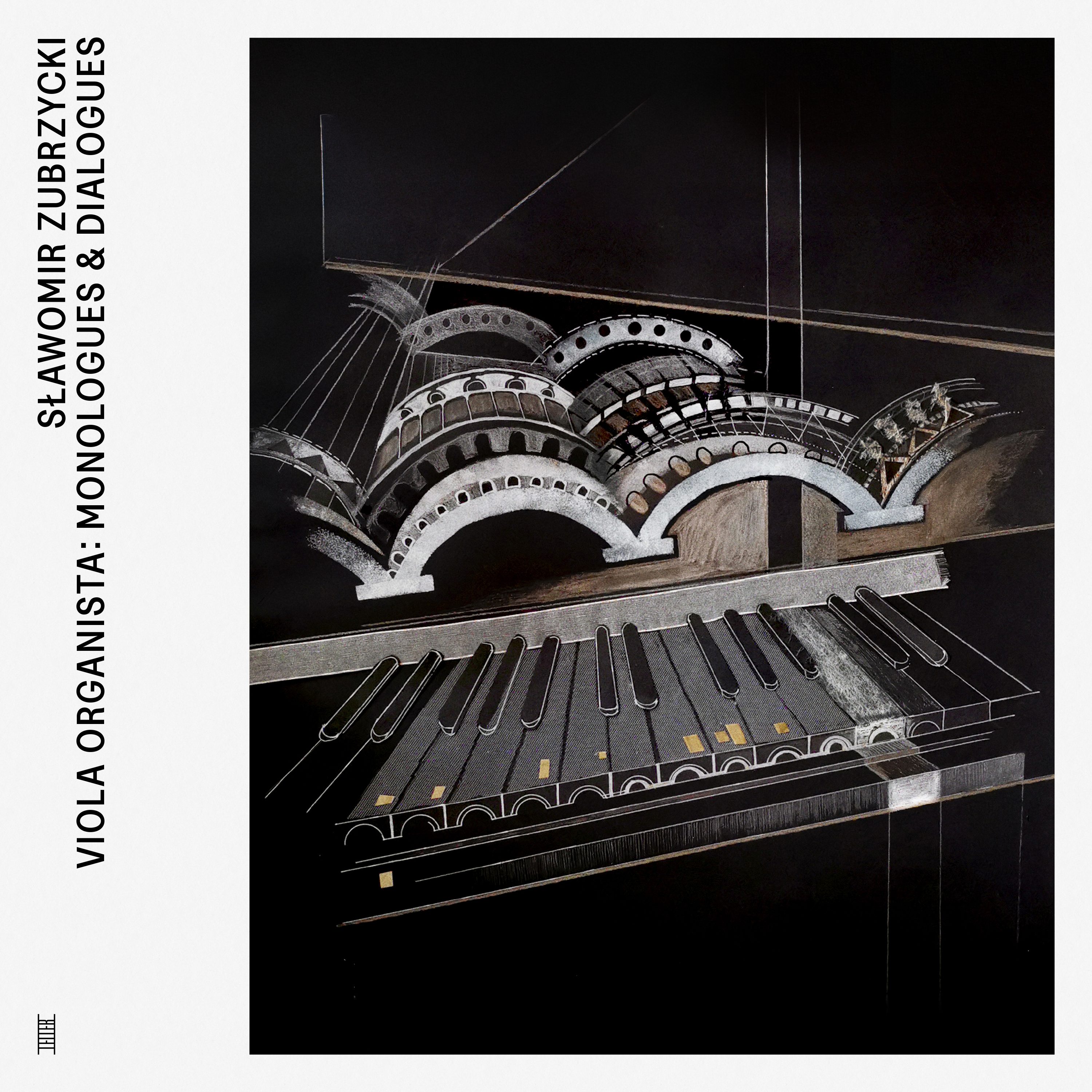-
LTR055Sławomir ZubrzyckiViola Organista2025

Polish pianist, claviolinist, composer, and instrument builder Sławomir Zubrzycki shares his new album ‘Viola Organista: Monologues & Dialogues’, a landmark recording that brings to life one of the most enigmatic inventions in the history of music: the viola organista, a long-forgotten bowed keyboard instrument originally sketched by Leonardo da Vinci. Produced by Nils Frahm and featuring works by Dowland, Marais, J.S. Bach, and others, the album is available on CD and across all digital platforms.
Da Vinci’s cryptic drawings from the Codice Atlantico depict a keyboard instrument whose strings are bowed by a continuous wheel system. The viola organista is not an imitation of the organ, nor a surrogate for the viola da gamba. Its sound hovers in a liminal sonic zone: a bridge between the tactile intimacy of string instruments and the structural elegance of keyboards. The instrument was never built by Leonardo, but the idea proved curiously immortal, inspiring some 200 iterations over the centuries under names such as Geigenwerk, Bogenklavier, Lyrichord, and Clavier-gamba.
Only in 2013, after years of historical research and planning, did Zubrzycki succeed in building a fully functional viola organista. Unlike conventional instrument makers, who follow centuries-old traditions, Zubrzycki built his first version with little more than Renaissance sketches and a fierce belief in artistic autonomy. “If you’re a violin or piano maker, you follow the laws of violin or piano making. But I needed to be somewhere in between. I had to follow my own imagination.”
That same imagination guided Zubrzycki from the practical task of restoring his student piano in 1980s Kraków to building the clavichord, a similarly overlooked instrument, in the 1990s. As of today, he has completed three viola organistas, each one unique, adorned with visual emblems inspired by Florentine grotesques, Leonardo’s sepia-toned sketches, and papyrus-like textures.
His journey has now culminated in a collaboration with visionary producer Nils Frahm at LEITER’s Funkhaus studio in Berlin, a recording space rich in both historical resonance and sonic subtlety. “Nils doesn’t rush,” says Zubrzycki. “There’s time for everything. He listens deeply. This instrument needs that kind of space.” The result is ‘Viola Organista: Monologues & Dialogues’, an album as rare and compelling as the instrument itself.
The repertoire spans an ambitious cross-section of music from the 17th to 18th centuries, selected by Zubrzycki and Frahm to explore the full expressive and technical range of the viola organista. Highlights include Athanasius Kircher’s ‘Modo Hypodorico,’ written in the melancholic Hypodorian mode; John Dowland’s haunting ‘Lachrimae Antiquae;’ and Marin Marais’ lyrical ‘La Rêveuse’ and dazzling ‘Les folies d’Espagne.’ Works by Georg Friedrich Händel, Johann Christian Bach, and a mysterious Polish composer, Jan Podbielski, expand the sonic palette. The album closes with two prominent works: Johann Christian Bach’s ‘Sonata in G Major for 2 Keyboards’ and Johann Sebastian Bach’s ‘Harpsichord Concerto No. 4 in A Major,’ performed with renowned Polish harpsichordist Lilianna Stawarz. Her long-time artistic partnership with Zubrzycki brings warmth, precision, and spontaneity to this lively musical dialogue. These pieces reveal the viola organista not merely as a historical curiosity, but as a living, breathing instrument capable of complex expression.
With the number of playable viola organistas growing, so too does the repertoire and potential for artistic exploration. Its singular voice caught the attention of Icelandic artist Björk, who invited Zubrzycki to collaborate on ‘Vulnicura Strings’, an album reimagined for voice, viola organista, and string quartet. In fact, Zubrzycki’s aim is not to produce museum pieces, but playable instruments for modern musicians. “This isn’t about me. It’s about the instrument. I want others to take it further.” Collaborators like Nils Frahm, whose own interest in timbral nuance and ambient acoustics lends the album its distinctive edge, are key to this future.
‘Viola Organista: Monologues & Dialogues’ is an audacious act of cultural memory, resurrecting not just an instrument, but a mindset: one in which invention, art, and emotion are bound together in harmonious mechanics.